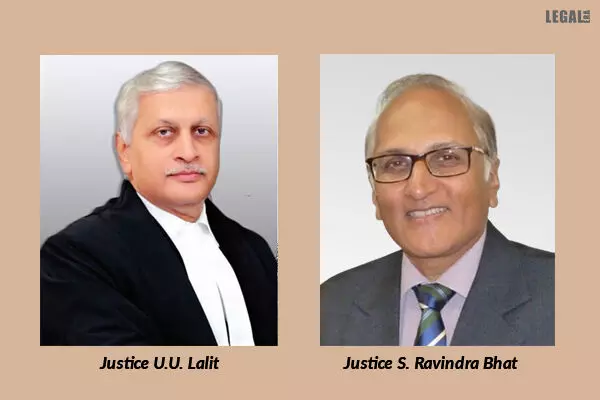- Home
- News
- Articles+
- Aerospace
- Agriculture
- Alternate Dispute Resolution
- Banking and Finance
- Bankruptcy
- Book Review
- Bribery & Corruption
- Commercial Litigation
- Competition Law
- Conference Reports
- Consumer Products
- Contract
- Corporate Governance
- Corporate Law
- Covid-19
- Cryptocurrency
- Cybersecurity
- Data Protection
- Defence
- Digital Economy
- E-commerce
- Employment Law
- Energy and Natural Resources
- Entertainment and Sports Law
- Environmental Law
- FDI
- Food and Beverage
- Health Care
- IBC Diaries
- Insurance Law
- Intellectual Property
- International Law
- Know the Law
- Labour Laws
- Litigation
- Litigation Funding
- Manufacturing
- Mergers & Acquisitions
- NFTs
- Privacy
- Private Equity
- Project Finance
- Real Estate
- Risk and Compliance
- Technology Media and Telecom
- Tributes
- Zoom In
- Take On Board
- In Focus
- Law & Policy and Regulation
- IP & Tech Era
- Viewpoint
- Arbitration & Mediation
- Tax
- Student Corner
- AI
- ESG
- Gaming
- Inclusion & Diversity
- Law Firms
- In-House
- Rankings
- E-Magazine
- Legal Era TV
- Events
- News
- Articles
- Aerospace
- Agriculture
- Alternate Dispute Resolution
- Banking and Finance
- Bankruptcy
- Book Review
- Bribery & Corruption
- Commercial Litigation
- Competition Law
- Conference Reports
- Consumer Products
- Contract
- Corporate Governance
- Corporate Law
- Covid-19
- Cryptocurrency
- Cybersecurity
- Data Protection
- Defence
- Digital Economy
- E-commerce
- Employment Law
- Energy and Natural Resources
- Entertainment and Sports Law
- Environmental Law
- FDI
- Food and Beverage
- Health Care
- IBC Diaries
- Insurance Law
- Intellectual Property
- International Law
- Know the Law
- Labour Laws
- Litigation
- Litigation Funding
- Manufacturing
- Mergers & Acquisitions
- NFTs
- Privacy
- Private Equity
- Project Finance
- Real Estate
- Risk and Compliance
- Technology Media and Telecom
- Tributes
- Zoom In
- Take On Board
- In Focus
- Law & Policy and Regulation
- IP & Tech Era
- Viewpoint
- Arbitration & Mediation
- Tax
- Student Corner
- AI
- ESG
- Gaming
- Inclusion & Diversity
- Law Firms
- In-House
- Rankings
- E-Magazine
- Legal Era TV
- Events
Supreme Court rules on interest on delayed refunds under CGST

Supreme Court rules on interest on delayed refunds under CGST
It allowed the appeals filed by the Government of India to reduce the interest granted by the Gujarat High Court on the export of goods from 9 percent to 6 percent
The Supreme Court has held that in cases of delayed refund of integrated tax (paid on export of goods) governed by the principal provision of the Central Goods and Services Tax Act, 2017, the interest would be payable at the rate of 6 percent, especially when the delay is not unwarranted.
A bench comprising Justice UU Lalit and Justice S Ravindra Bhat stated, "Wherever a statute specifies or regulates the interest, it will be payable in terms of the provisions of the statute. Wherever a statute is silent about the rate of interest and there is no express bar for payment of interest, any delay in paying the compensation or the amount due, would attract an award of interest at a reasonable rate on equitable grounds."
The court allowed the appeals filed by the Government of India to reduce the interest granted by the Gujarat High Court for the delay in refunds of integrated tax paid on export of goods from 9 percent to 6 percent.
Under the Integrated Goods and Service Tax Act, 2017, a registered person making exports of goods outside India is eligible to claim a refund of either unutilized Input Tax Credit (ITC) on the export of goods under a bond or a letter of undertaking or refund of Integrated tax paid on export of goods. The refund is claimed in accordance with the CGST Act and the rules thereunder.
Two petitioners-companies, which received the refund after inordinate delay had approached the Gujarat High Court seeking compensation, as the inaction on the part of the Union Government was per se arbitrary and the delay adversely impacted their working capacity. The high court granted relief by stating that the petitioners were entitled to an interest of 9 percent p.a.
Thereafter, the Union Government filed review petitions seeking a reduction in the interest rate from 9percent to 6 percent. But the court dismissed the review petitions.
The Supreme Court noted that as the case did not emanate from the orders passed by the Adjudicating Authority or Appellate Authority/Tribunal/Court, it was governed by the principal provision of the CGST Act, which deals with interest on delayed refunds.
It referred to a previous case wherein the apex court had held that there was no right to get an interest on a refund except as provided by the statute, which in the facts of that case was the Income Tax Act, 1961. However, when the statute was silent about the rate of interest there is no expressed bar to grant interest at a reasonable rate on equitable grounds.



